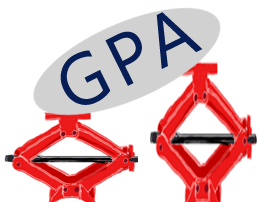Originally published on March 2nd, 2021.
Mines, of course, has its reputation of being hard or, preferably by the admission’s team, “rigorous.” STEM degrees are expectedly challenging, but Mines comes with a hidden poison. We could debate the difficulty of courses compared to other schools, but one objective facet of Mines is unavoidable: unlike nearly every other school, retaking and passing a class you failed doesn’t replace your grade. Your GPA is still affected by your previous grade regardless of circumstance. How honestly draconian of a group of academic diehards.
Well, good news everyone. That’s changed. There is a new GPA recovery policy. Full details can be found on CASA’s website but the summary is if you received a D or F in a course starting in Fall 2020, you may retake the course and the grade you receive will replace the one in your GPA.
However, this policy is rather unknown. It only exists on CASA’s website and was unannounced anywhere aside from a buried notice in the Daily Blast last December. It isn’t surprising if you’re learning about the policy for the first time by reading this.
To figure out what’s going on, I’ve interviewed Dr. Colin Terry, Assistant Vice President for Student Life who was instrumental in implementing the new policy.
Tell us briefly about yourself.
My name is Colin. I serve as the Assistant Vice President for Student Life at Mines and this is my 12th year at Mines.
Why was the GPA recovery program implemented? What were the hopes or goals for it?
The GPA Recovery Policy was put forward as a promising recommendation to support student resilience via the Every Oredigger initiative. It was the hope of those who researched, wrote, and endorsed the policy that it would support a student’s ability to more quickly recover from unexpected challenges that negatively impacted grades and/or from a difficult time in their personal life that negatively impacted their grades. All too often, students are bogged down by prior performance, and their more recent mastery and/or efforts.
Why wasn’t this program implemented sooner? Was it in response to COVID-19?
This was not in response to COVID.
To give us perspective, what is the process of proposing, passing, and then implementing a program like this? How long does it take?
Generally speaking, academic policies take approximately 6 to 18 months, from start to finish. Quality peer and aspirant institutional research, internal vetting and deliberation, internal software/system review/testing, and then appropriate deliberation with faculty and staff are all important aspects of such an effort. Ultimately, it has to be approved by the Faculty Senate. Because of COVID, our policy work was longer than expected and it took approximately 18 months.
Mines used to have an older recovery program according to the registrar’s website. It states: “Between fall 2007 and summer 2011, Mines allowed grade replacements for courses not repeatable for credit. The most recent grade for the course replaced the prior grade and was counted towards a student’s degree requirements. The most recent grade will be applied to the overall grade-point average even if the previous grade is higher. The course must also have been an exact match (course ID, e.g. MATH111=MATH111).”
Do you know why this old program was implemented and then ended?
The old policy was fraught with loopholes and errors. For example, in the old policy you could replace an “F” with an “F”, and as a result, never actually worsen your overall GPA. In many ways, we went from a far too liberal of a policy to no policy at all – i.e. one end of the spectrum to the other. The new policy captures some of the best aspects of the previous policy in a moderate, and well-written form with no loopholes.
Will this new GPA recovery program also be eventually ended?
I hope not! Like all policies, it will be reviewed periodically to ensure it is working effectively and in the student’s best interest.
The program states: “Accordingly, students who earn a “D” or “F” [starting] from Fall 2020 coursework, and any future term, may retake the class for GPA recovery.” On CASA’s website detailing the GPA recovery program, a banner reads “You are worth more than your GPA.” Why is coursework from previous semesters ineligible for the recovery program? Is it possible to revise the program to cover students who have worked or wish to work hard in retaking classes they’ve struggled in?
It is not possible to revise the program. It’s important that students are aware of all academic policies that support or impact their progress and decision-making while they are in the course. Such policies may inform how a student may withdraw or complete a course. And for that reason, we choose to start with Fall 2020, when the policy was adopted.
Is there anything you specifically would like students to hear or know?
Credit [should be highlighted] to the committee of faculty and staff who drafted the policy and to Academic Affairs leadership and Faculty Senate for endorsing this prudent and meaningful way to help students who persevere and work hard. •


'New GPA Recovery Program' has no comments
Be the first to comment this post!